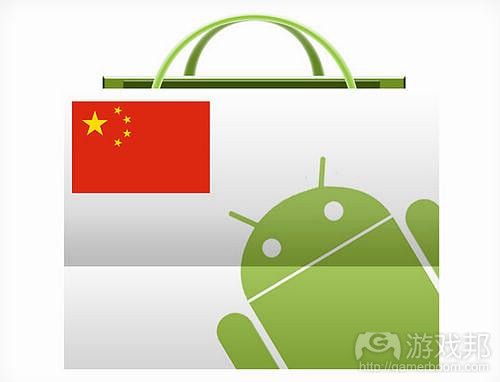关于中国手机游戏市场的4大现实趋势
作者:Joel Brodie
众所周知,中国游戏市场规模庞大(甚至远超日本)!但你对中国市场的游戏状况真正了解多少呢?它如何区别于美国?你能在中国赚钱吗?谁会是该地区的赢家?(暗示:不是苹果!)
很荣幸,我应邀出席参加CocoaChina Games Conference。以下为我在大会上获得的感受。
1.中国是个庞大的游戏市场
也许这种现象十分明显,但直到你涉足这一领域,你仍无法领会中国游戏市场的庞大与快速增长趋势。
2012年,中国以超过10亿的手机用户成为全球第一大移动市场。Flurry报告曾指出,今年3月,中国在iOS和Android激活量位居世界首位。App Annie报告称,中国iOS应用的下载量仅次美国,列居第二。基于这种增长速率,不久中国就将在游戏下载量上跃居首位。
2.收益水平相对较低
可惜,收益水平并未同下载量一同大幅增长。今年中国智能手机游戏收益为15亿元人民币(约2.5亿美元,1美元=6.3元人民币),预计2013年将提升至50亿元人民币。这是笔巨大数目,但同比智能手机的市场规模与游戏下载量,该数值仍然相对较低。在此涉及两大问题,首先是经济问题。
中国是个富饶的国家,且有一批正不断壮大的中产阶级,但大多数中国人仍无法支付电影票价。若这种现象无法得到改变,大多数人仍会继续免费体验游戏。
其次为文化问题。此次我访问了大量中国游戏开发者和玩家,他们普遍认为,中国人确实喜欢免费获取移动内容,尤其是青年人群。这种普遍化现象十分明显,虽然几乎所有地方的人们都偏好免费内容,但在中国尤为显著。不少人透露,中国用户会为找到获取免费内容的渠道感到自豪,他们会向朋友炫耀,分享。因此,目前在中国最热门的应用是那些无需越狱手机,就可免费获取的苹果App Store应用。
3.在中国市场,Android必将打败iPhone
所有中国游戏开发者均相信,苹果会在中国落败。而从许多人排队等候购买苹果产品时,谷歌已经基本上被中国限制的事实来看,怎么会出现这种情况?
答案是价格问题。富人能负担起一台iPhone或iPad,他们认为这是社会地位的象征。然而大部分中国用户无法购买这类产品,所以他们转而购买Android手机。
我们可以把手机比作汽车来思考这个问题。比起我到过的其它城市,我在北京看到更多新型的高档汽车。可是,大部分中国人并没有汽车;一般他们会乘坐地铁、公交、摩托车、自行车或者徒步行走。
苹果用户就好比汽车主人,Android购买者则是无法购买汽车的人群。在这个人口超过10亿,拥有上百万中产阶级与富人的国家中,苹果能够获取大量利润。然而大部分的中国人选择的是Android手机。
而Android和中国市场最令人震惊的地方在于,虽然Google Play在中国被禁用,但中国仍遍布300多个不同的Android市场。人们会购买HTC和三星手机,但最热门的Android手机当数相对廉价的设备,以及Vivo、Kobee、Konka和大量不知名公司出产的手机。
CocoaChina热作《捕鱼达人》数据显示,该游戏在中国地区的Android支持率领先iPhone。它已在所有iOS和Android设备下载超过1亿次,其安装量覆盖了50%以上的中国iOS和Android设备。它在中国的风靡程度远高于《愤怒的小鸟》和《水果忍者》。
《捕鱼达人》有30%的安装量来自Android设备,来自苹果设备的安装量仅占比17%。Cococa预计,截至2013年,该游戏在中国地区Android平台的收益将远超iOS平台,尽管iPhone 5已经面世。
我在中国遇到的所有游戏开发者纷纷抱怨,同Android相比(应用审批流程无需耗费1天),iOS应用在中国的审批流程(如果幸运的话,也需要数周时间)既缓慢又低效率。
基于当前情况,苹果在中国市场将不会有多大发展空间。
尽管如此,苹果并未感受到过糟的发展前景,而谷歌搜索引擎却遭到百度及其它竞争对手的冲击,目前,中国大量类似Facebook的新兴应用已聚集上百万用户,Facebook可能在延伸至中国市场前就会铩羽而归。对于意欲在此称霸的西方公司来说,中国就是一个难以攻克的堡垒。
4.中国游戏公司打算进军美国市场
我拜访的所有中国游戏公司纷纷表示希望将自己的游戏引入美国市场。他们相信在美国获利更为简单,因为同比中国用户,那里的用户更乐意为游戏付费。
我们会发现一个有趣现象,大多数美国公司正向其它方向发展,他们试图本土化自己的游戏,将其引入中国市场,因为他们相信,自己的游戏在App Store上曝光所需的营销成本过于昂贵,不会为带来更多盈利(除了一些拥有上百万美元的公司,它们仍可负担得起每月3美元或者更高的CPI)。
这种现象如同擦肩而过的两艘船,美国和中国这两个国家的游戏公司穿洋过海,进入对方领域,但只发现了对方市场挑战性和盈利性并存的现实。(本文为游戏邦/gamerboom.com编译,拒绝任何不保留版权的转载,如需转载请联系:游戏邦)
Top four game trends in China
By Joel Brodie
We all know that games are big in China (even bigger than in Japan, perhaps)! But what do we really know about the state of games in China? How does it differ from the US games market? Can you make money (or renminbi) in China? Who are going to be the winners? (Hint: not Apple!)
I was honored to be a speaker and guest at the CocoaChina Games Conference hosted by Chukong Technologies, a leading mobile game developer, publisher and developer community in China. Here’s what I learned.
1. China is a big gaming market
It may be obvious, but until you set foot on the ground, you can’t appreciate how big and fast China and its games market is growing.
In 2012, China officially became the #1 market in the world with over 1 billion people owning mobile phones. Flurry reported that China took the lead as the number one country for iOS and Android activations in March 2012. And, according to App Annie, China ranks as number two country for iOS app downloads behind the US. Based on the growth rate, China should be number one in terms of game downloads soon.
2. Revenues are not so big
Unfortunately revenues are not growing as fast as downloads. Games on smartphones generated 1.5 billion RMB ($250 million, where 1 USD = 6.3 RMB) in 2012 and are estimated to grow to 5 billion RMB in 2013. That’s big, but low relative to the size of the smartphone market and amount of games being downloaded. There are two issues at play here, and the first is economic.
There is tremendous wealth in China and a growing middle class, but the majority of Chinese still cannot afford pay for a ticket to the movies. Until this changes, most people will continue to play games for free.
The second issue is cultural. I talked to many Chinese game developers and gamers in my week of travels, and the general consensus is that the Chinese people really like to get their mobile content for free. Especially young people. This is a big of a generalization, and it’s the case everywhere that people prefer free over paid content, but it’s especially true in China. A few people told me that there is pride for Chinese mobile users to find a way to get content for free and to brag and share it with their friends. Some of the most popular iPhone apps now in China are apps that let you get free apps through the App Store without jailbreaking your phone.
3. Android will defeat the iPhone in China
Every Chinese game developer believes Apple is going to lose in China. Given the fact that people are waiting in lines to buy Apple products in China and the fact that Google is essentially banned in China, how can this be?
The answer is price. The rich can afford an iPhone or iPad and view it as a status symbol. The average Chinese consumer, however, can’t. So they’re buying Android phones instead.
A good way to think about this is to compare mobile phones to cars. I saw more new and fancy cars in Beijing than any city I have ever been to. The majority of Chinese, however, don’t own a car; they take subways, buses, scooters, bikes, or walk instead.
Whereas the Apple buyer is the same person that owns a car, the Android buyer is the person who can’t afford one. In a country of more than one billion people, with hundreds of millions of middle class and wealthy people, Apple will make tons of money in China. The majority of Chinese, however, are buying Android phones.
What’s amazing about Android and China is how Wild Westa market it is. Google Play is banned in China, but there are over 300 different Android marketplaces instead. People buy HTC and Samsung, but the most popular Android phones are cheaper handsets and phone clones from Vivo, Kobee, Konka, and a ton of other companies I have never heard of.
The stats from CocoaChina’s own hit game Fishing Joy support the dominance of Android over the iPhone in China. Fishing Joy has been downloaded over 100 million times and is installed on over 50% of all iOS and Android devices in China. It’s more popular in China than Angry Birds or Fruit Ninja.
Yet Android handsets account for over 30% of all Fishing Joy installs compared to only 17% for Apple. In 2013, Cocoa expects Android revenues will surpass iOS revenues for Fishing Joy in China, even with the iPhone 5’s release this past week.
More bad news for Apple: every game developer in China I talked to complained about how slow and ineffective the app approval process is for iOS apps in China (takes weeks if lucky) when compared to Android (which can take less than a day).
China is Apple’s to lose and based on current trends, it will.
Just so Apple doesn’t feel too bad, Google’s search engine is being trounced by Baidu and other Chinese search competitors, and there are so many Facebook-like apps and start-ups with millions of users that Facebook is probably dead-on-arrival when they expand to China. Bringing dominance to the Chinese market, it would seem, it a tough nut to crack for the West.
4. Chinese game companies are coming to the US
The final trend is that every Chinese games company I met expressed a desire to bring their games from China to the US. They believe that it’s easier to make money in the US, where people are more willing to spend money on games than consumers in their homeland.
It’s interesting to note that most US companies are moving in the other direction, trying to localize and introduce their games to China because they believe the marketing costs to get their games discovered in the App Store is too prohibitively expensive to be profitable (except for a chosen few companies with millions of dollars to spend per month at a $3 or higher CPI).
Like two ships passing in the night, US and Chinese game companies are crossing the ocean to enter each other’s territory, only to discover how lucrative and challenging each market is. (source:gamezebo)









































 闽公网安备35020302001549号
闽公网安备35020302001549号